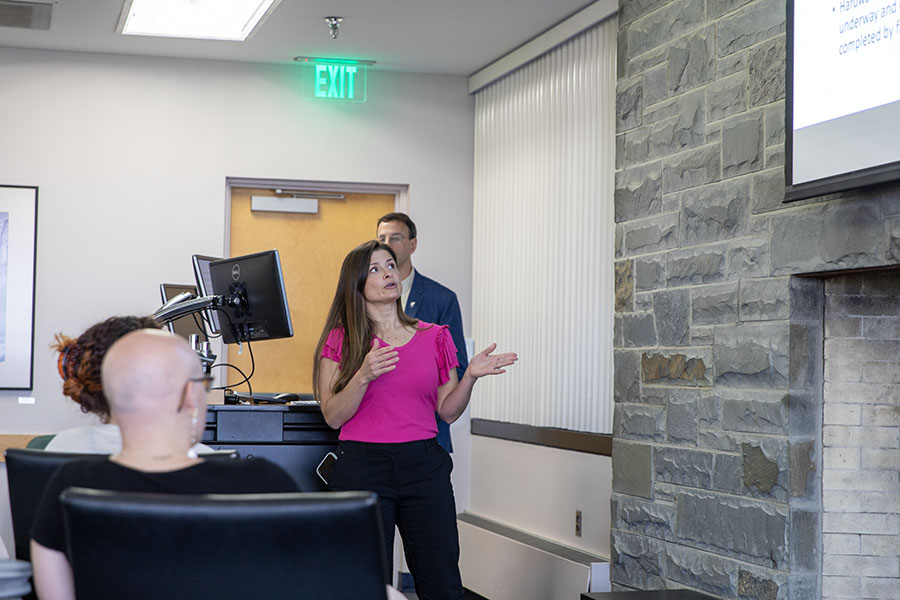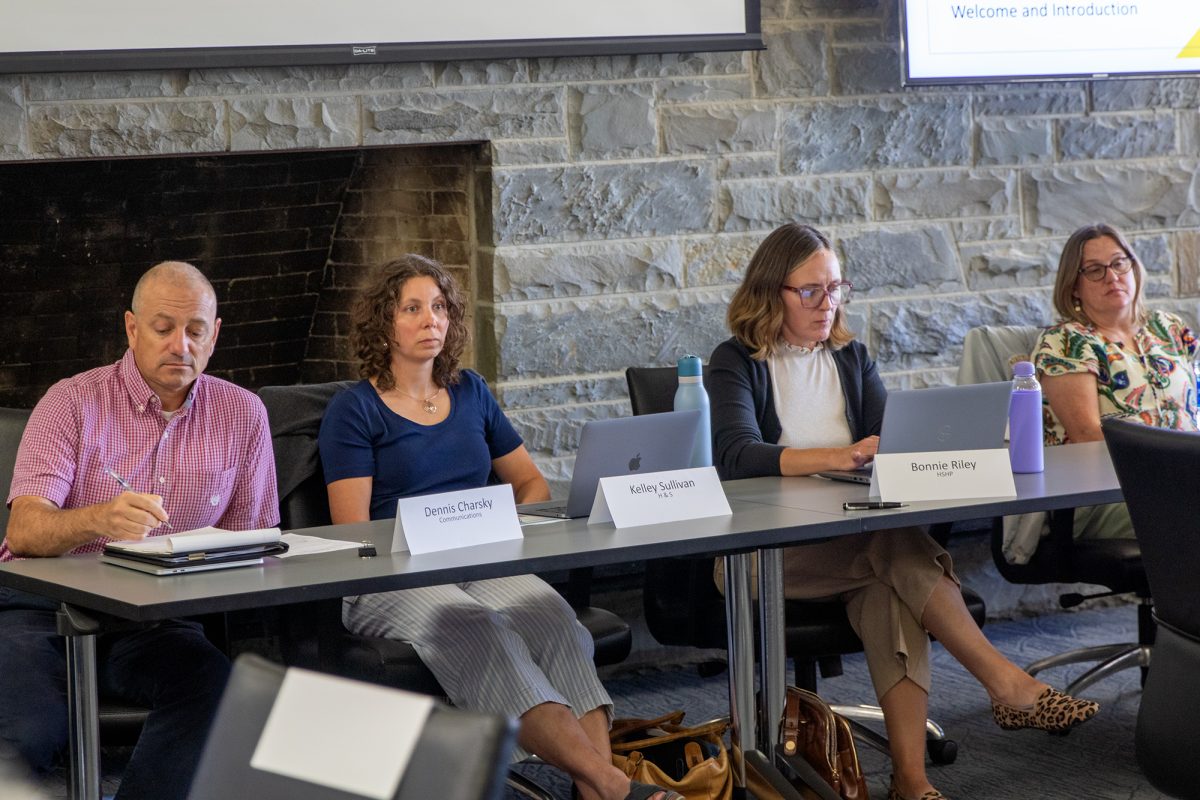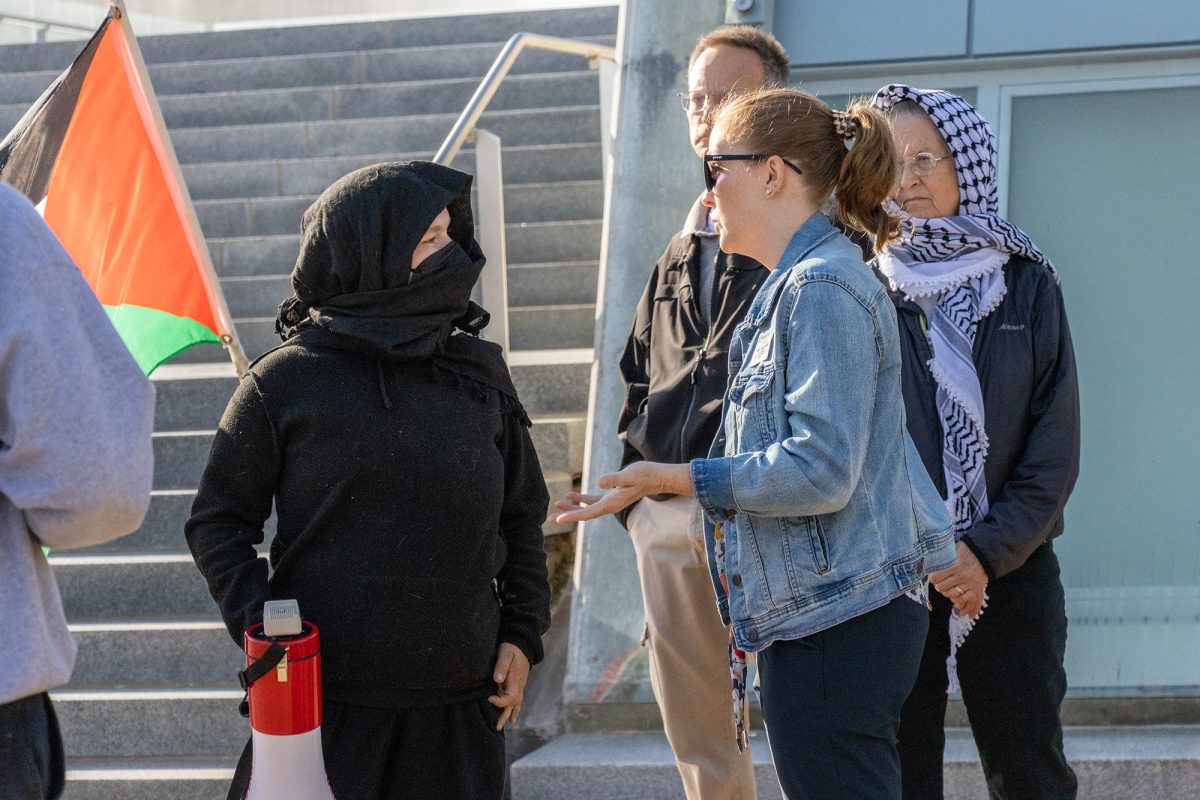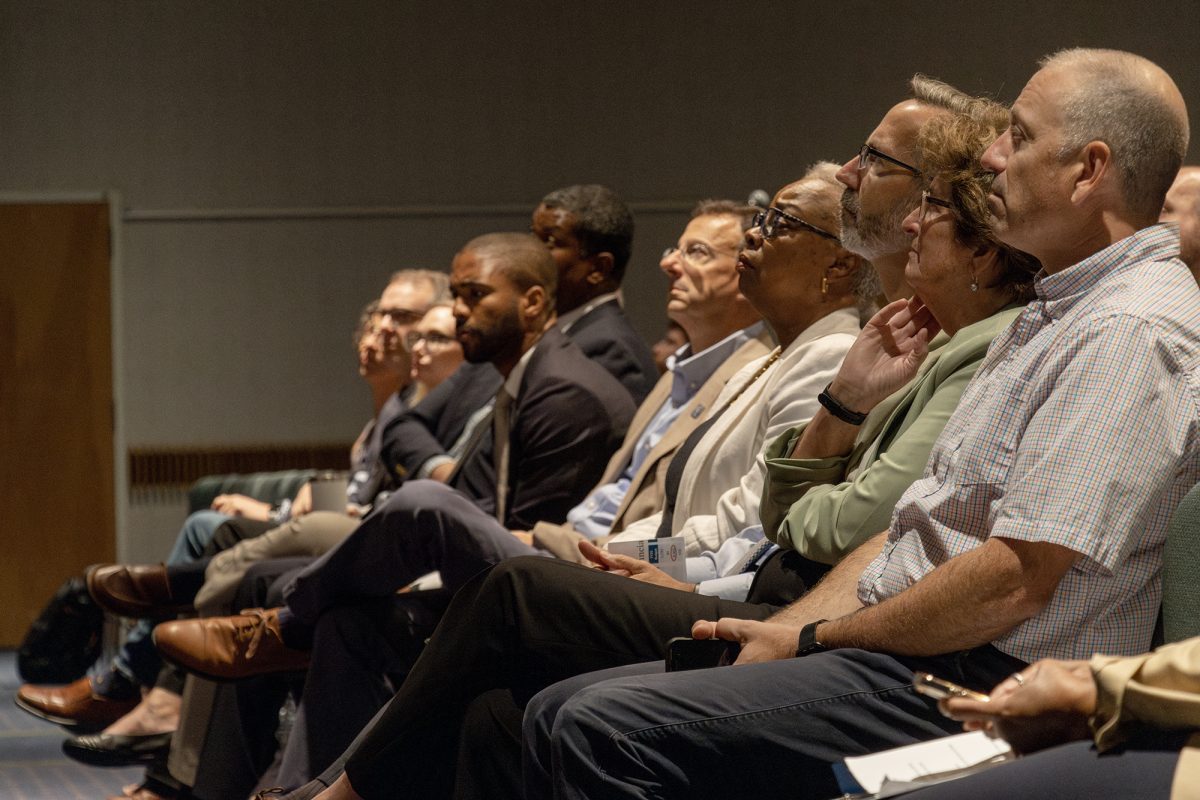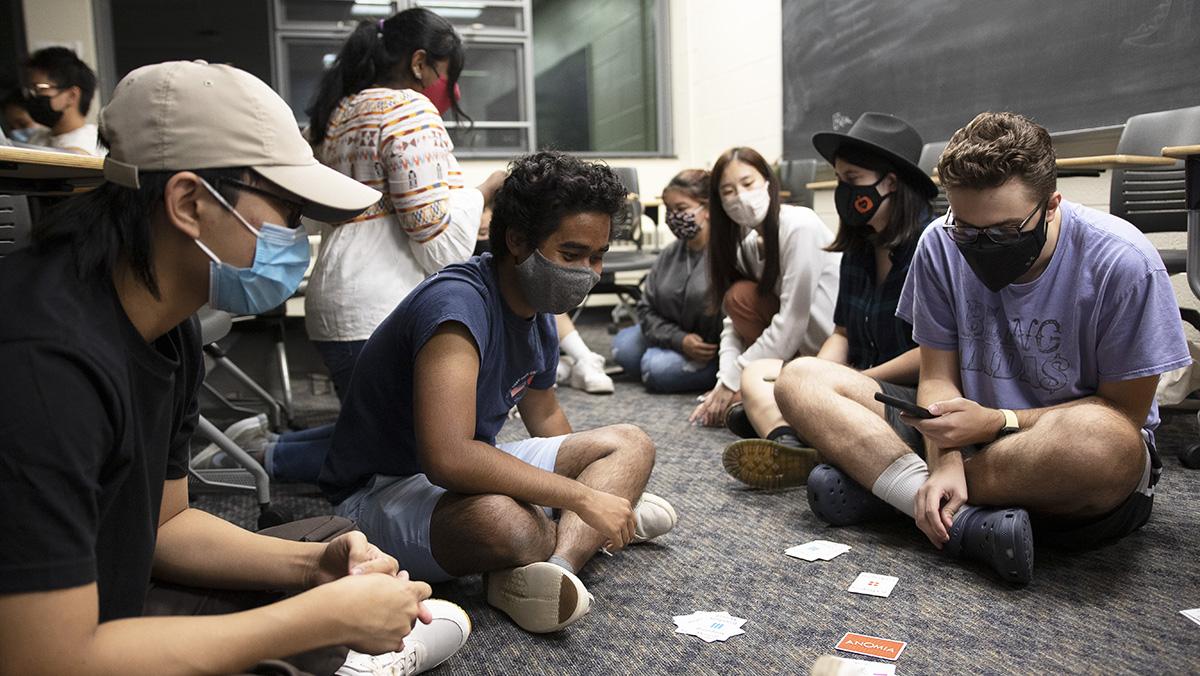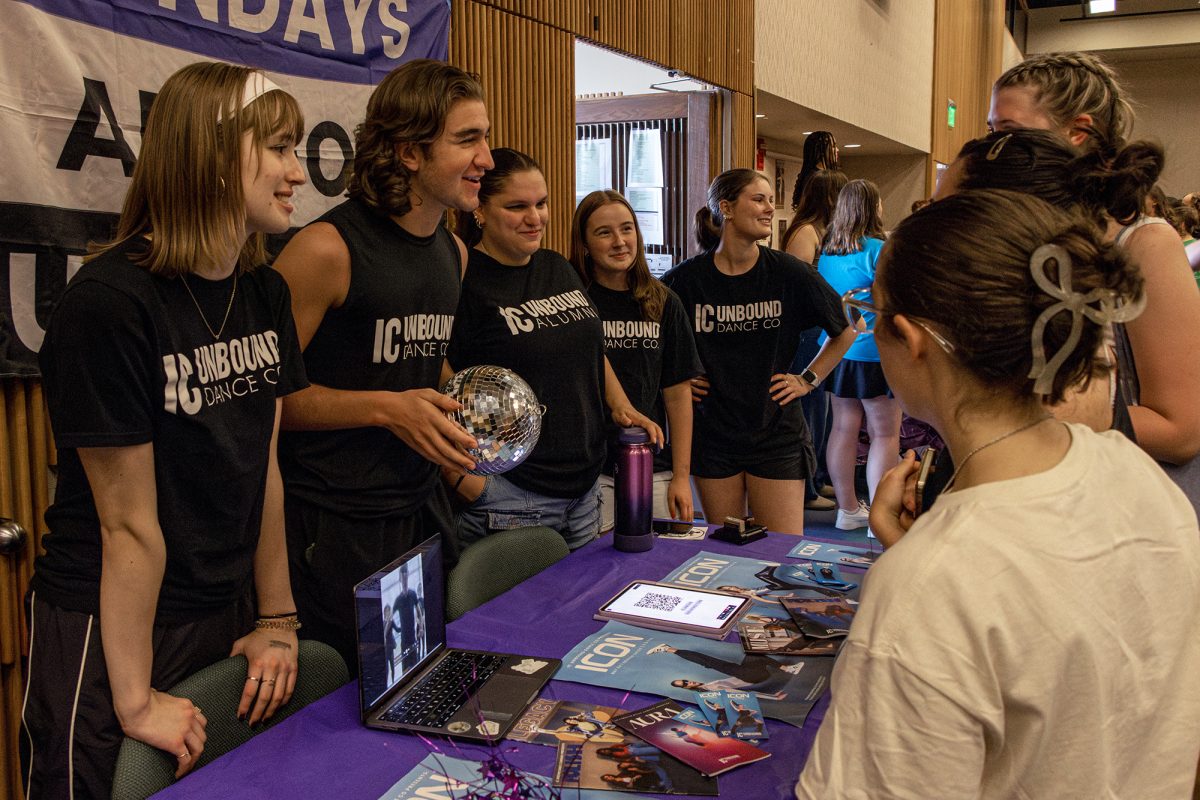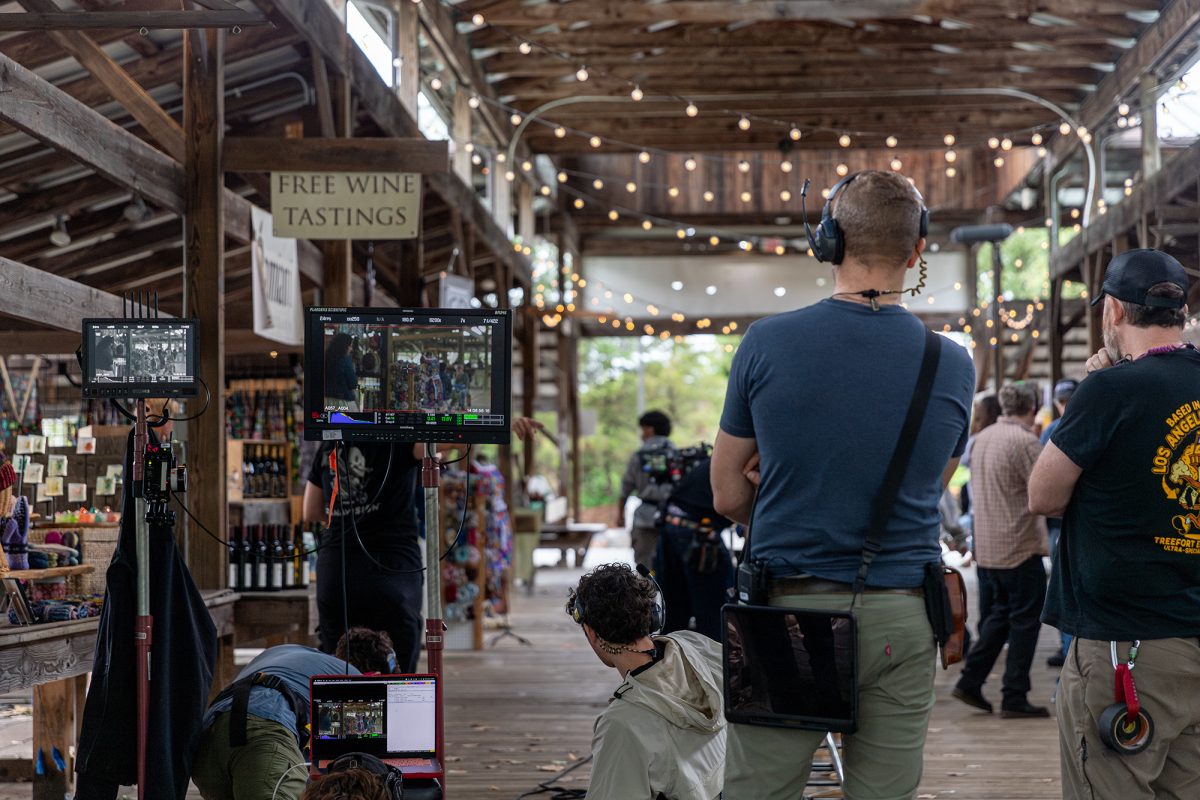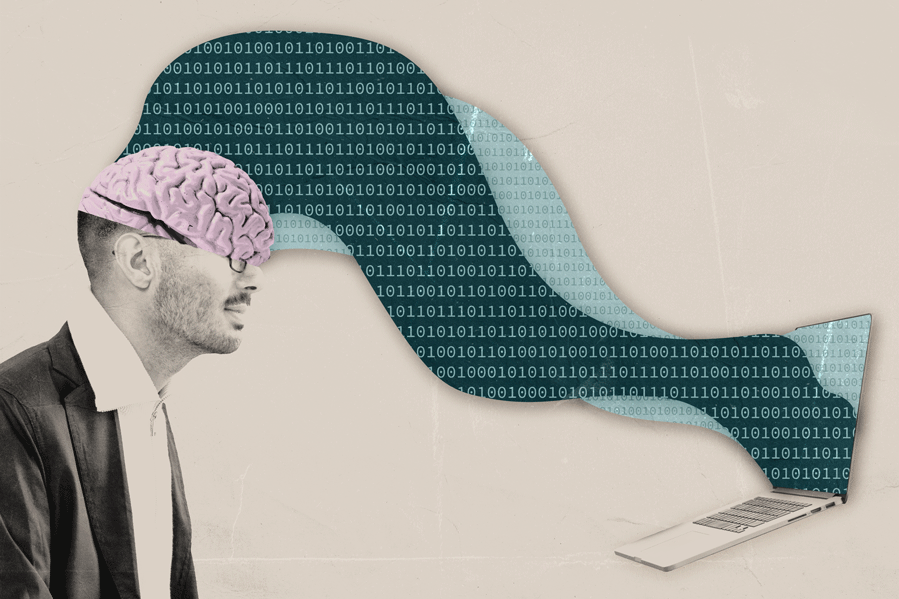The Ithaca College Student Governance Council met April 29 to pass three bills regarding time extension when presenting bills, an ad-hoc committee to change orientation to further support incoming students from underrepresented backgrounds, and providing a senator position for the Students of Color Coalition.
The council also heard from Dave Weil, vice president and chief information and analytics officer in the Department of Information Technology and Analytics; Jenna Linskens, director of learning and innovative technologies in the Center for Instructional Design and Educational Technology; and Casey Kendall, deputy chief information officer and associate vice president of applications and infrastructure.
Weil started the presentation with an overview of staff and faculty who work within the IT department, events the department recently held, like the EdTech day and the gaming tournament, and new projects the department seeks to build.
“[The AI the college will use] might be the generative [AI] we have to create [or we could use] machine learning to help better understand the problem or a situation,” Weil said. “One of the things that we’ve been doing is we’ve been experimenting with AI.”
Weil said the department is experimenting with two AI tools: Ithaca Insights, a chatbot with the goal of helping prospective students learn more about the college, and an IT service desk agent that will help students with any issues they are having with technology, like issues logging in with DUO.
Weil said the department outlined a plan for the college and AI in 2024. The first step is to create a presidential working group to discuss how the college will integrate AI; continue the Center for Faculty Excellence and IT partnership; identify a coordinator for AI initiatives; launch two or three pilot AI projects; create a fund for AI efforts, acquiring and managing AI licenses; and providing learning opportunities to the campus community.
“One of the things we need to be thinking about is where is it appropriate to use AI and where is it not appropriate to use AI,” Weil said. “We have to think about how people respond, what type of information would be provided, what’s appropriate; these are questions that we need to be thinking about as an institution. The President is establishing a working group on AI and in fact we need some students for this group.”
Sophomore Ty Anderson, vice president of Residential Affairs, said he was concerned with AI having a bias based on a lack of diversity within the people who work on it and asked the working group what it would look like to negate that.
Kendall said the reason for having the working group is to look at AI through the lens of the campus community and as the group is training, the opportunity for AI to be biased is taken into account.
Weil said the department plans to move the electronic sports facility located in Friends Hall across the hall from its current location. With this move, the e-sports facility will have 12 gaming stations, broadcast booths to allow students to live stream while gaming and casual gaming stations to allow playing with friends. Weil said the department is waiting to receive the green light for construction and hopes to make the change for Fall 2024.
After Weil discussed the update, Kendall said there are changes being made to improve the bandwidth of cellular reception on campus. Linskens said the introduction of iClicker and Tophat, an application used to track attendance and student engagement in class, will no longer be used because of the inconvenience it caused students.
“The top hat model requires students to purchase a card or key code. After all the feedback, the decision was to go with iClicker,” Linksens said.
After hearing from the IT department, the council discussed the Bill Time Extension bill, introduced by sophomore Aoife Hartigan, senator-at-large, and sophomore Senate Chair Nikki Sutera to recognize that often when presenting a bill, more time is needed than the two minutes given. The bill proposes five minutes instead of two.
The bill was passed with nine in favor, one abstaining and zero opposed. Hartigan abstained because she proposed the bill.
The council then discussed the bill that first-year student LaRon Pigford, first-generation senator, introduced regarding an ad-hoc committee, which means a temporary committee made to solve a specific problem, change orientation and further support incoming students from underrepresented backgrounds.
Pigford said that after the council’s last meeting, he made revisions to his bill based on feedback from the council and the campus affairs committee. The revisions Pigford made focused on streamlining the original goals of the bill to give incoming students from underrepresented backgrounds an orientation that better assists them and their identities. The revisions also provided more clarity to the roles of members of SGC and their involvement with the committee.
The bill was passed with eight in favor, two abstentions and zero opposed. Pigford abstained because he proposed the bill and senior Utkarsh Maini, School of Business senator, could not vote because he was not in the room when the vote took place.
Senior Carli McConnell, president of the student body, presented a bill on creating a senate position for a student involved with the Students of Color Coalition. The bill aims to allow students who are a part of the SOCC more power through a senate position and give SGC ideas on how they can support students of color.
The bill was passed with nine in favor, one abstention and zero opposed. McConnell abstained because she proposed the bill.
The council then moved into an open agenda where they discussed the current elections happening for the incoming members of the council and the importance of encouraging voting. Sutera said that in the previous year, 6% of the campus community voted in the election which was a record high and urged council members to tell their friends to vote.
For the election, students will be able to vote for the positions of president of the student body, vice president of campus affairs, vice president of academic affairs, vice president of residential affairs, vice president of business and finance, vice president of communications, senators-at-large, senator for the School of Music Theatre and Dance, senator for the Park School of Communications, senator for the School of Humanities and sciences, international senator, and senator for the Class of 2026.
Elections for the next members of SGC are open on IC Engage and will be open until May 2 at 11:59 p.m.
The SGC is the sole representative body for the Ithaca College student community. The SGC can be contacted at [email protected].
Editor’s note: a previous version of this article described Casey Kendall’s job title incorrectly and misidentified Jenna Linskens, David Weil and Kendall for each other in some paragraphs. These errors have been rectified to reflect Kendall’s correct title — deputy chief information officer and associate vice president of applications and infrastructure — along with the correct attributions to quotes.



